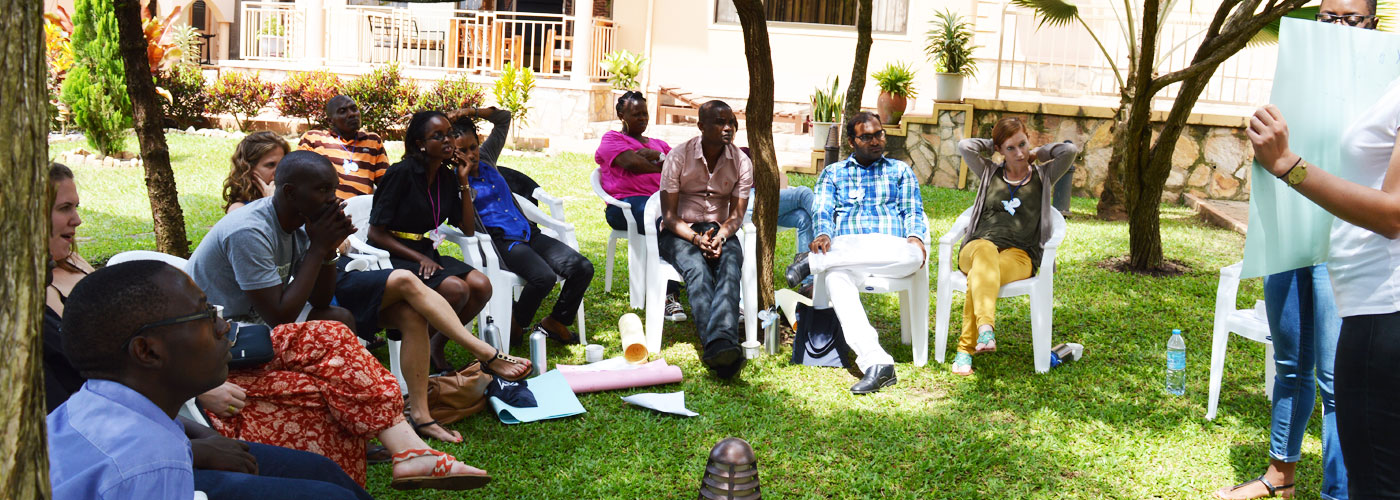This is the first post of a series on entrepreneurship in East Africa and the nine companies that participated in the second annual Unreasonable East Africa program.
In East Africa, 2015 has been a year of excitement around entrepreneurship. Uganda was named the most entrepreneurial country in the world; the 2015 Global Entrepreneurship Summit was hosted in Kenya (and attended by Obama); a recent report stated that impact investors currently manage over 200 investment vehicles in the region; and we just concluded the second ever Unreasonable Institute in East Africa.
This momentum has propelled business creation, and we’ve seen an increasing number of innovative companies come into existence. However, this rising tide of entrepreneurship has not, as the saying goes, proceeded to raise all boats. Working to make sure companies are positioned to succeed in this environment, we’ve learned a lot through our two classes of entrepreneurs. Below are some of the most important things we have learned that we can teach entrepreneurs to help them thrive.
There is no book
Operating in East Africa has elements of both simplicity and complexity. Systems here are in some cases less formal or organized, giving a company more flexibility to do things how they want. At the same time, the lack of formal systems doesn’t mean that systems don’t exist; on the contrary, there are many ways a company is supposed to do things, they just aren’t written down or Google-able.
Learning how to operate within unwritten rules is an art and a skill that can dictate life or death for a company as it grows. Tweet This Quote
Learning how to operate within these unwritten rules is an art and skill that can dictate life or death for a growing company. This takes the importance of mentorship to a new level, as it can sometimes be the only way to access this critical information. Recognizing this, we continue to bring in local mentors that deeply understand how to do business in East Africa.
Vulnerability is not only okay, but essential
When we interview entrepreneurs, one of the first things we test for is their willingness to say they don’t know when they do not know. Everyone we bring to the Unreasonable East Africa Institute has this trait. But even amongst these brave entrepreneurs, there is a hesitance to really lay their weaknesses on the table. This is understandable—it is much easier to admit you don’t know how to approach sales than to admit, as one of our entrepreneurs did, that you don’t know if your kids will respect you for giving up a career to start a business. However, both of these worries can equally challenge the existence of a business, so we aim to work with entrepreneurs who are willing to open up, explore their challenges and address them.
Entrepreneurship is…at times, equal parts genius and crazy. Tweet This Quote
You need a tribe
One of our favorite quotes, by Caroline Myss is, “We evolve at the rate of the tribe we are plugged into.” Although we focus on matching our entrepreneurs with mentors, we have also seen them learn just as much from each other. All of these entrepreneurs have navigated a lot of challenges to get their businesses to where they are, and in doing so, learned lessons that can be helpful to others.
Fellow entrepreneurs understand how hard the journey of entrepreneurship is. Tweet This Quote
Potentially more important, though, is that fellow entrepreneurs understand how hard the journey of entrepreneurship is; how you are, at times, equal parts genius and crazy. Maintaining relationships with people that “get it” is an incredibly powerful motivator at the times you want to quit.
Know when to accept “no” for an answer
Entrepreneurs are all people that have been told that their idea won’t work, probably by many people, yet they have made it work anyway. This grit and tenacity has gotten them results, and it’s what is needed to drive change. We work with companies that have overcome the initial “nos” and received some traction, which is where things get interesting.
Entrepreneurs need to balance out their vision by taking into consideration what the critics, the market and the experts say. Tweet This Quote
By all means, we need people that don’t take no for an answer… sometimes. After the rush of confidence that comes from overcoming the initial “nos”, we see some entrepreneurs disregard future “nos” without much consideration.
To succeed in this space, it’s an important trait for entrepreneurs to balance out their vision by taking into consideration what the critics, the market and the experts say.
Above all, execute
Generally, you can tell which entrepreneurs in our space have been to incubators or accelerators by one trait—storytelling. With entrepreneurs all vying for attention, particularly investor attention, the ability to tell a good story has been equated with success. We’ve had people tell us great stories in their written applications, and then back out of our application process when they get to the site visit stage, unable to validate their claim. What we shouldn’t and can’t forget is that we are in the impact space to create impact, and that execution creates impact, not stories.
We are in the impact space to create impact, and execution creates impact, not stories. Tweet This Quote
Another thing we’ve learned as we’ve run our programs is that there are a lot of idea-stage companies that need support. Last year, we received almost 200 applications for our program. Of those, over 30% automatically did not qualify for our program since they were idea-stage, and our 5-week program is best for companies that have traction and are ready to grow. We get a lot of emails from entrepreneurs asking what is “wrong” with their idea, discouraged after being turned down by program after program, including ours. Surely some of them don’t make it to apply again in another year as we ask them to.
We want more of the companies that are trying to create change in East Africa to have access to information on what it takes to make it. So in 2016, we will run two programs: our normal five-week program, and a shorter Unreasonable program for idea-stage companies to validate their business models. We’re excited to keep growing and learning alongside our entrepreneurs and partners, as this transformation of East Africa continues.
Curious About Unreasonable East Africa?



